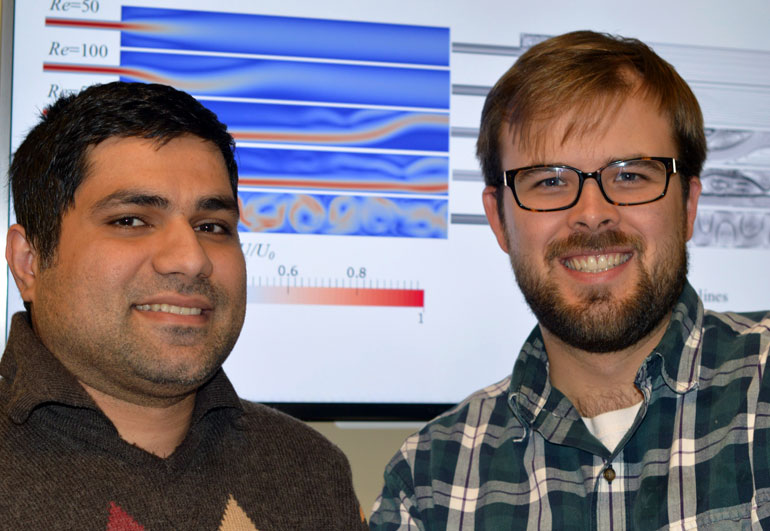
UBC PhD candidate Nima Moallemi (left) and Assistant Professor Joshua Brinkerhoff used computer simulations to improve wastewater filtration.
New wastewater system design guidelines developed at UBC can help municipal governments better protect aquatic life and save millions of dollars a year.
In a recent study, engineers at UBC’s Okanagan campus developed guidelines that can tailor the design of specialized filters, called fluidized bed reactors, to local conditions and help prevent phosphorous deposits from forming in wastewater systems.
The guidelines also help ensure the fluidized bed reactors avoid the release of phosphorus into the environment. As phosphorus promotes oxygen-depleting algae blooms, its release can suffocate aquatic life.
“If left unchecked, phosphorus can cause significant environmental damage and millions of dollars in additional maintenance costs for large wastewater plant operators, such as municipalities,” says the study’s principal investigator Joshua Brinkerhoff, assistant professor of engineering. “These are consequences we obviously want to avoid and the design guidelines developed in this research can help us to do that.”
Using computer simulations, Brinkerhoff and PhD candidate Nima Moallemi were able to test different types of water flow scenarios in a virtual environment and estimate the operating conditions of the fluidized bed reactors that achieve the best mixing of liquid and solid material to remove phosphorus.
The guidelines allow designers to account for differing wastewater rates and quality found in different geographic regions, as the chemical makeup and amount of wastewater varies with geography and city size.
Moallemi and Brinkerhoff’s study was recently published in the journal Computers and Fluids. To find out more, visit: www.sciencedirect.com/science/article/pii/S0045793016303036
—30—